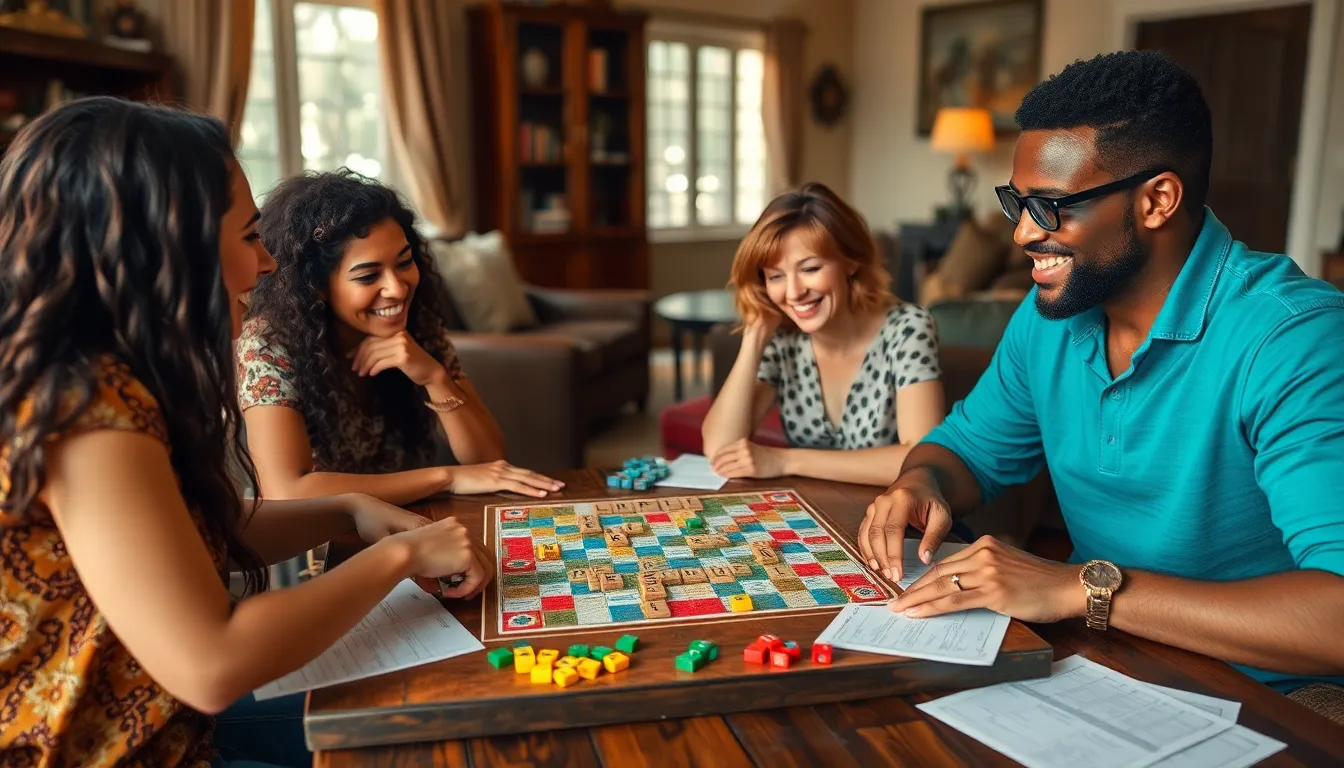Ever found yourself in a word game jam, staring at a grid of letters, and wishing for a miracle? Well, look no further! Five-letter words ending in “nie” are your secret weapon. They’re quirky, they’re fun, and they might just be the game-changer you need to clinch that victory over your friends.
Table of Contents
ToggleOverview of 5 Letter Words Ending in Nie
Five-letter words ending in “nie” offer exciting options for word enthusiasts. These words play a significant role in various word games and puzzles. Some existing examples include “banie” and “funie.” Each serves a unique purpose within gameplay.
Exploring these words provides an opportunity for players to expand their vocabulary. Players can boost their strategy, gaining a competitive edge against opponents. Knowing five-letter words that conclude with “nie” can lead to higher scores and victories.
These words often represent creative expressions or lesser-known terms. Using them regularly can enrich one’s linguistic skills and improve overall performance in word-related challenges. Mastering this specific word form contributes to a more extensive lexicon.
Players frequently encounter challenges when recalling less common words. However, focusing on distinctive five-letter words serves to streamline this process. Incorporating these words into gameplay can reveal new strategies, making participation in word games enjoyable and rewarding.
Five-letter words ending in “nie” provide a strategic advantage. By utilizing this selection, players can enhance both their vocabulary and their gameplay. Engaging with these terms regularly can transform typical gameplay into a more dynamic experience.
Common Examples

Five-letter words ending in “nie” provide unique options for players. Their distinctiveness can lead to strategic advantages in word games.
Analysis of Usage
Words such as “banie” and “funie” show varied usage across different contexts. “Banie” often appears in informal settings, while “funie” may relate to playful topics. Players frequently search for these terms during games to maximize their scoring potential. Usage patterns indicate that these words can fit seamlessly into various game scenarios, making them valuable additions to any player’s arsenal.
Fun Facts About These Words
Words ending in “nie” often carry unique meanings and origins. Many feature ties to specific cultures or concepts. For instance, “rafinie” and “karnie” illustrate the diversity within this small category. Players might find it interesting that including these words can boost one’s word game scores significantly. Additionally, knowing these rare words can impress fellow enthusiasts, showcasing a deep understanding of language.
Strategies for Remembering
Effective strategies can enhance memory retention for words ending in “nie.” Players often utilize various techniques to make recall easier during gameplay.
Mnemonic Devices
Creating mnemonic devices aids in memorization. Associating each five-letter word with a memorable phrase or visual can facilitate retention. For example, linking “banie” to a playful scene in a park can create a vivid image. Another example involves “funie” and imagining a fun party scene. Crafting these connections makes the words more memorable and easier to retrieve during games. Repetition amplifies the effect, so recalling these phrases regularly boosts familiarity.
Word Association Techniques
Using word association techniques enhances cognitive connections. Connecting five-letter words with familiar concepts amplifies recollection. Associating “banie” with “ban” or “funie” with “fun” can spark recognition during gameplay. Creating chains of related words can further deepen memory links. Playing with rhymes or similar sounds makes focus easier. Engaging regularly with these associations cultivates quicker recall, which proves beneficial during competitive scenarios. Exploring various contexts for these words allows players to visualize their application, strengthening retention.
Benefits of Learning These Words
Expanding vocabulary with five-letter words that end in “nie” enhances word game performance. Players often gain a significant edge by mastering unique terms like “banie” and “funie.” These words not only add depth to gameplay but also enrich linguistic skills.
Incorporating these distinctive words can elevate scoring potential. For instance, “banie” and “funie” fit seamlessly into various game scenarios. They serve as strategic tools, allowing players to use less common terms that opponents might overlook.
Utilizing mnemonic devices for memory retention proves effective. Associating “banie” with playful imagery or linking “funie” to a festive scene can make recall easier. Regular repetition reinforces these connections, strengthening memory pathways.
Adopting word association techniques further boosts retention. By connecting “banie” with concepts like “ban” or relating “funie” to “fun,” players create chains of familiarity. Engaging with such associations regularly facilitates quicker recall during intense gameplay sessions.
Embracing the cultural significance of these words enhances overall understanding. Unique meanings tied to “rafinie” or “karnie” demonstrate the richness of language. Players not only improve their scores but also impress peers with their extensive knowledge.
Overall, incorporating five-letter words ending in “nie” into gameplay offers multiple benefits. Players can enjoy a more dynamic experience while maximizing scoring opportunities.
Exploring five-letter words that end in “nie” opens up a world of possibilities for word game enthusiasts. These unique terms not only enrich vocabulary but also provide strategic advantages during gameplay. By mastering words like “banie” and “funie,” players can elevate their performance and impress opponents.
Incorporating these distinctive words into gameplay enhances not just scoring potential but also overall enjoyment. As players embrace the challenge of learning and using these terms, they’ll find their linguistic skills flourishing. Engaging with these words can lead to a more dynamic and rewarding experience in any word game.








